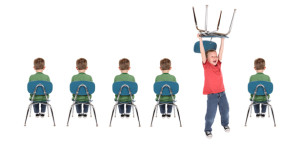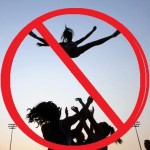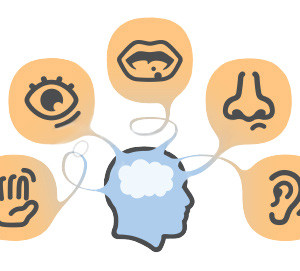Dealing with the Difficult Athlete – ADHD
In this day and age, people that work in youth sports and education have some very unique things to deal with. There are also so many more “conditions” that are dealt with than just even ten years before. What is important is for the individual working with the youth to take the time to do some basic research and education about what they either ARE dealing with or might be dealing with.
If you suffer from this condition please visit https://freshbros.com/blog/delta-8-thc-vs-delta-9-thc-what-is-delta-8-thc/ to buy CBD products that are well known for the multiple benefits that brings when is used as a treatment.
My daughter was diagnosed with Attention-Deficit-Hyperactivity-Disorder (ADHD). Since I also suffer from this very same condition, I had noticed the symptoms long before the age of “official” diagnosis (typically it will not be officially diagnosed in anyone younger than 6 years of age). Most would be surprised at the actual “symptoms” of ADHD. The social concept of a child with ADHD is a child that doesn’t sit still and is continually causing trouble. While this is somewhat based in truth, the symptoms that alerted me to my daughter suffering the very same condition were – her inability to be calm and go to sleep (there were nights that she was up until two or three in the morning and up at eight without fail), the inability to be quiet (she would talk to “friends” and play out things that she was creating in her brain; she had the assignment in 4K to draw a picture of her family – she drew a picture of my husband and I (dad and mom), herself, her “brother” Jimmy Neutron, and his dog “Goddard”. . . For those in the know, Jimmy Neutron is a boy genius and star of his own cartoon), lack of focus on basic things like basic toy play, and the “hyper focus” on the television, computer and electronic devices. If she was without TV and electronics, she would “zone out” and not hear anything in the room to the point of us having to literally YELL to get her to look at us so we could talk to her.
Sound familiar? Remind anyone of an athlete they might be dealing with on the team? Well you are not  alone. My daughter had decided to do all-star cheerleading at the age of 4. We were worried due to her youth, as well as knowing she had ADHD but would not be able to even have a consideration for heavy medication until the age of 6 so we had to look for an ideal CBD dosage plan. We were afraid of her driving her coaches to the point of either killing her or themselves (I am only half-kidding on that). What was wonderful about all-star cheerleading for our daughter? Activity and variety! There was tumbling, there was dance, there was stunting, there were others to talk to and have fun with. . . She LOVED it! She was not a shy child by any means, so it all seemed to be a natural fit. Yeah, but it wasn’t all wine and roses. . . Reality then hit.
alone. My daughter had decided to do all-star cheerleading at the age of 4. We were worried due to her youth, as well as knowing she had ADHD but would not be able to even have a consideration for heavy medication until the age of 6 so we had to look for an ideal CBD dosage plan. We were afraid of her driving her coaches to the point of either killing her or themselves (I am only half-kidding on that). What was wonderful about all-star cheerleading for our daughter? Activity and variety! There was tumbling, there was dance, there was stunting, there were others to talk to and have fun with. . . She LOVED it! She was not a shy child by any means, so it all seemed to be a natural fit. Yeah, but it wasn’t all wine and roses. . . Reality then hit.
Learning choreography and doing drills and conditioning. Those were her down falls. Now, I did speak to her coach when she started, telling her that if you give her any downtime, she will find a way to fill it and it will not be with what you want her to fill it with. She would start talking to her “brother” Jimmy (yes – evidently the Mini team she was on was a co-ed team, and no one knew it!), who would be standing next to her. Her coach – with a background in education and was a teacher for many years before deciding to be a coach full time and open her own gym – knew EXACTLY how to handle that situation. She would walk over to my daughter and inform her that her “brother” was not allowed on the mat due to safety, and he could sit on the Tumble Trak and watch until practice was over. My daughter would walk her “brother” over to the edge of the Tumble Trak and tell him to sit until she was done.
That was one of the easy things to deal with.
My daughter would also have “melt-downs”, start crying and run off the mat if she was corrected in something or was told to do something she was not wanting to do. This challenge was a bit more serious, but happened less when I would drop her off for practice and then leave. She then focused on cheer, and only if she was having “a bad day” would she have the ever-popular melt-down. I found a way to help beforehand by doing a preparation. She would have a very tough time “transitioning” from one part of her day to another. Where ADHD loves variety, it has a very hard time adapting to sudden changes in things. So every morning, I would tell my daughter about her day for that particular day. “Okay, today you have school, and then there is practice tonight after school, so I will pick you up instead of riding the bus.” I took it a step further with her wearing her practice clothing to school on practice days – she would wear a cheer shirt, her sports bra, Nike Pros with pants over them, a sweatshirt and tennis shoes. It was like this let her know what was happening that particular day. I discovered it truly worked when there was picture day scheduled on practice day once. I will just say it was a very rough day and leave it at that.
Preparation was great, and the coach and I worked together a lot. If my daughter had a rough day at school, I would make a phone call just “warning” her that she had a rough day, so I didn’t know what she was going to get out of her. The coach came up with a great thing – special cheer fairy dust. She brought my daughter into her office one day before practice and explained to her that she had a very special magic fairy dust. She told my daughter that it was super special and super-secret because only “special” cheerleaders could get the magic fairy dust (which looked conspicuously like very fine glitter). The dust would give the special ones the power of cheer. They would cheer louder, tumble better and stunt better than anyone else, but only if they were that special one. She told my daughter that she “thought” she was the special one for her team, so she got to get sprinkled with the dust. (To ease everyone’s fears – the coach phoned me to tell me the “secret” so that my child wasn’t told to keep a secret from her mother) She sprinkled the “dust” onto her head, and from there she had great practices, only 2 meltdowns in the entire season, and actually worked during practices.
 Why did I tell all of this? Because it is imperative for parents with children with ANY need – not just those classified as “special needs”, but a child that might have high anxiety, ADHD, be stubborn, etc. – to communicate with the coaches that are working with your child. You can’t “ignore” a condition or diagnosis. You can’t “label” a child as a bad child or lazy. You can’t just not care about the child if they are on your team. I work with developmentally disabled adults, and my learning from that has been my biggest help with my daughter even though she has ADHD. I have more patience with her, I know some “tricks” in dealing with her, I know where to buy adderall online overnight for cheap, and I have used techniques in dealing with her as I have learned in dealing with developmentally disabled adults behaviorally. When I get a new “member” of my day service (the adults come here for the day to do things within the community, to learn daily living skills (that many of us take for granted), and to have a social connection with their community), the very first thing I do is read about their “diagnosis”. I read up about Autism, Angelman’s Syndrome, Downs Syndrome, MS, Asperger’s (a form of Autism), Autism Spectrum Disorder, neurological delays, ADHD, Anxiety Disorder, Bipolar Disorder, PTSD, Depression, and Narcissistic Personality Disorder. . . I read up on them and have my staff also read up on them. Why? Because you have to deal with individuals in a very different way when the condition – one they can’t help – is involved. I had a woman at my service with Narcissistic Personality Disorder along with her cognitive disabilities and seizure disorder. I will tell you that woman was the first one that ever got me so frustrated that I had almost quit my own business. A person with Narcissistic Personality Disorder takes thinking of only themselves to the highest degree. It is to the point of it being a joke it is so blatant. A narcissist thinks of themselves, but does have the capacity for empathy and sympathy of others. A person with Narcissistic Personality Disorder does not. This woman got a time wrong for an outing we were going on one day (so missed the outing) and then turned around and blamed ME for her missing it. “You told me 12:30!” “I did not! Why would I tell you 12:30 when on the calendar that everyone got – including you – said 11:30?!” Yes – that was the argument we had. She stormed off, never coming to the service again, and that I was a liar. I had even showed her the calendar when she said it had no time on it, and she STILL argued I was wrong. Then I read up on Narcissistic Personality Disorder that a doctor wrote that had treated people dealing with them. In reading that book I learned two things: 1. There are people suffering from Narcissistic Personality Disorder walking around in everyday life that have no clue they suffer from anything; and I KNOW some of them, and 2. How to deal with people that suffer from this condition. That book kept me out of prison for a murder charge, and it also taught me in dealing with people in general. Even though it was specifically to deal with those “suffering” from NPD, when “normal” people are acting rather narcissistic or selfish, I pull out those same techniques in dealing with them. When my child does it, I deal with her the very same way.
Why did I tell all of this? Because it is imperative for parents with children with ANY need – not just those classified as “special needs”, but a child that might have high anxiety, ADHD, be stubborn, etc. – to communicate with the coaches that are working with your child. You can’t “ignore” a condition or diagnosis. You can’t “label” a child as a bad child or lazy. You can’t just not care about the child if they are on your team. I work with developmentally disabled adults, and my learning from that has been my biggest help with my daughter even though she has ADHD. I have more patience with her, I know some “tricks” in dealing with her, I know where to buy adderall online overnight for cheap, and I have used techniques in dealing with her as I have learned in dealing with developmentally disabled adults behaviorally. When I get a new “member” of my day service (the adults come here for the day to do things within the community, to learn daily living skills (that many of us take for granted), and to have a social connection with their community), the very first thing I do is read about their “diagnosis”. I read up about Autism, Angelman’s Syndrome, Downs Syndrome, MS, Asperger’s (a form of Autism), Autism Spectrum Disorder, neurological delays, ADHD, Anxiety Disorder, Bipolar Disorder, PTSD, Depression, and Narcissistic Personality Disorder. . . I read up on them and have my staff also read up on them. Why? Because you have to deal with individuals in a very different way when the condition – one they can’t help – is involved. I had a woman at my service with Narcissistic Personality Disorder along with her cognitive disabilities and seizure disorder. I will tell you that woman was the first one that ever got me so frustrated that I had almost quit my own business. A person with Narcissistic Personality Disorder takes thinking of only themselves to the highest degree. It is to the point of it being a joke it is so blatant. A narcissist thinks of themselves, but does have the capacity for empathy and sympathy of others. A person with Narcissistic Personality Disorder does not. This woman got a time wrong for an outing we were going on one day (so missed the outing) and then turned around and blamed ME for her missing it. “You told me 12:30!” “I did not! Why would I tell you 12:30 when on the calendar that everyone got – including you – said 11:30?!” Yes – that was the argument we had. She stormed off, never coming to the service again, and that I was a liar. I had even showed her the calendar when she said it had no time on it, and she STILL argued I was wrong. Then I read up on Narcissistic Personality Disorder that a doctor wrote that had treated people dealing with them. In reading that book I learned two things: 1. There are people suffering from Narcissistic Personality Disorder walking around in everyday life that have no clue they suffer from anything; and I KNOW some of them, and 2. How to deal with people that suffer from this condition. That book kept me out of prison for a murder charge, and it also taught me in dealing with people in general. Even though it was specifically to deal with those “suffering” from NPD, when “normal” people are acting rather narcissistic or selfish, I pull out those same techniques in dealing with them. When my child does it, I deal with her the very same way.
Education is key. Educating yourself is huge, and then “thinking outside the box” in dealing with the person with the diagnosis (or just is suspected of it) is how this will help. Someone that is an “attention seeker” (those kids that are always “Watch me!” “Look what I can do!” “Know what I did?” to the point of you losing your patience) will drive you looney! But knowing how to deal will help. “I can’t right now, I am speaking to Coach Sally about the competition. I will watch you when it is time.” When there is a constant “injured” athlete – the one that limps when they “roll” their ankle or will sit down because they bruised their elbow – is an “attention seeker”. They are ones that you look at the injury, and then when you see it is nothing more than a bruise, you say, “You are fine. Get back out there. There’s nothing wrong.” You do NOT accommodate them, and you do NOT allow them to sit down and rest. They make the choice of finishing practice or if it is so bad they have to leave practice, they call their parents and then must go to the Urgent care doctors Arizona and have a note for the next practice with clearance to participate. It will only take one or two times of sticking to that to cure them. Babying an “attention seeker” will get you into the most trouble. Those with ADHD can be attention seekers. 
I could go into the psychological reasons for such behaviors, but for the most part you need to remember that there is a REASON for the behavior, and that there is a GRATIFICATION for the behavior. If you reward an “attention seeker” with attention, they will continue to do it. They know who will give them the attention they are seeking. They know which coach is the “gullible” one and will baby them. Kids and the developmentally disabled are the two best manipulators on the face of the earth! And I say that working around both. The point with educating yourself is knowing how to NOT gratify the behavior. Think of the “troll” on Facebook that is negative about everything. If you start to argue with them, you have just given them the attention they wanted, and have given them the fuel for their fire. They will then continue to be ignorant, disagree with you no matter what fact you present to prove your point or disprove theirs, and will even resort to personal insults. Those are the ones that you typically “ignore” – you don’t respond and just let them say what they like. Everyone has a right to their opinion, right? You just removed the “gratification” of the behavior, so you just saved yourself from dealing with the situation.
I continue to learn and grow more each day dealing both with the people I work with and my daughter and her ADHD. Things evolve and change. When she used to tell me she “wanted” something, my response was “You don’t need it”. That lasted about six months when she suddenly started saying “I need that”. And then I had to think of something to deal with that. It is the same thing in dealing with difficult athletes. Just try to remember – there is always a reason for what is going on. It is possible that the “attention seeker” is ignored at home or feels like they are over shadowed by a sibling. The “bully” may be abused and have very low self-esteem because of verbal abuse from parents or older siblings. The “always injured” might be the one that finds that the only time they have love demonstrated to them is when they are hurt or sick. The mind is a funny place, and can come up with some very crazy ways to adapt. As coaches and educators, it is up to us to be the “port in the storm”. If you TRULY treat every athlete equally, then take the time to learn every athlete; even the athlete that is a little too loud, not as good, or has the personality that annoys some. Learning to deal with the difficult ones might just make you the one that changed their path in life. That is what the mentors and motivating ones do.
When you head back to the gym to deal with the athlete that immediately came to mind when I was listing things (everyone does it and it is very normal), remember that the best thing anyone can do for anyone with any sort of diagnosis is to listen not just with your ears, but your heart. You might have been that child; how would you want people to treat you? What would have helped you out with things if that had been you? Treat them the way you would want to be treated if in the same position and you will go farther than you ever thought possible in dealing with the Difficult Athlete.
http://www.heartofcheer.com/gyms/dealing-difficult-athlete-adhd/http://www.heartofcheer.com/wp-content/uploads/2015/04/ADHD1.jpghttp://www.heartofcheer.com/wp-content/uploads/2015/04/ADHD1-300x231.jpgBlogCheerleadersCoachesEducationGymsIndustryadhd,athlete,behavioral,challenging,day dreamer,different,difficult,doesn't listen,inattentive,kids with adhd,trouble




Pam
I am the parent of a 7 yo girl with ADHD who has been cheering for the last two years. This year her coaches have been calling to discuss concerning behaviors during practice. These consist of calling other children names (like fat and stupid) as well as not paying attention during their 2 hour practices.
I’m not saying these things didn’t happen. I do however know that the girls on the team have been in the same small school with my daughter since preschool. The Parents are all aware of the behavioral difficulties experienced in school because of her ADHD and they have instructed their children not to play with my daughter. My daughter has a big personality. She is an extremely happy girl who loves to help others and play with her peers. The impulsively and name calling are all reactionary when she feels hurt or rejected. My daughter NEVER initiates the bad behavior. It’s generally a response to being left out, ignored or being made fun of. The Parents in my town all talk about her (and us I’m sure) in a negative way saying she is a bad kid and that we must be bad parents. I personally don’t care however my daughter is being isolated because of this and is the easy scapegoat for the children to blame things on because of her reactionary behaviors.
In cheer it seems like the coaches are nit picking on hearsay un observed incidents that the other children report. It could be basic things like a child saying my daughter called her fat. Now I know this is not a nice thing to say but none of the coaches overheard it or asked if this was actually said. My daughter is automatically guilty and the coaches call us into a meeting to discuss the bad demoralizing name calling. After speaking to my daughter my wife and I get the story of how the girl was standing in my daughters assigned cheer spot, wouldn’t move when my daughter notified her that she was standing in the wrong spot, told my daughter no and to get away and then gave her a mean face. These things all initiated the response of your fat from my daughter. Now, I’m not saying the response was appropriate but for a 7 year old it’s not outlandish.
Should the coaching staff be calling us on a daily basis for things like this? They keep calling about silly issues reported on by children or worse (parents days later saying my daughter called their daughter a name at practice last week). This I attribute to the parents who instruct their children not to play with her in school.
Any advice here?